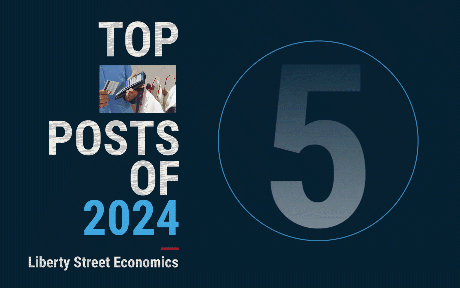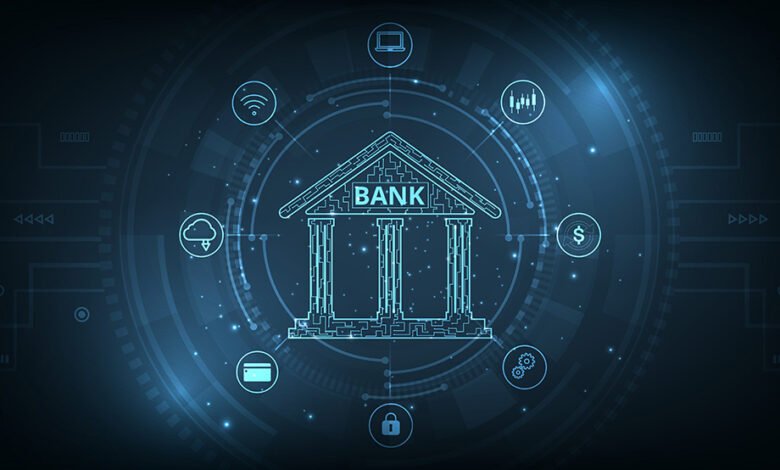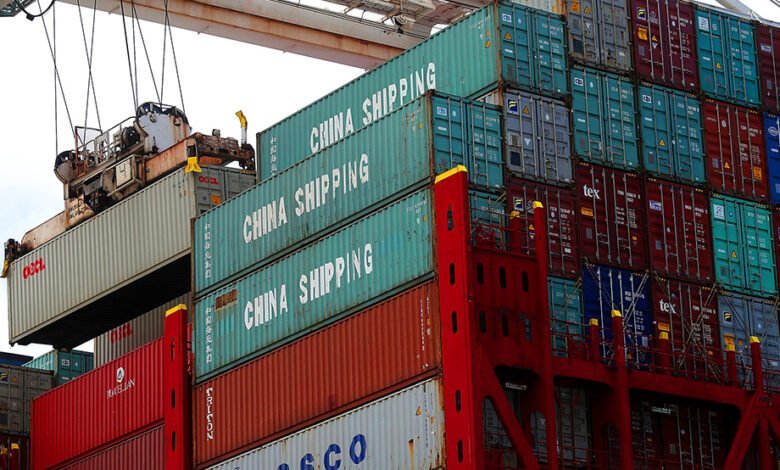ECONOMY
-

How Censorship Resistant Are Decentralized Systems?
Jon Durfee and Michael Lee Public permissionless blockchains are designed to be censorship resistant, meaning access to the blockchain is unhampered. In practice, different blockchain ecosystem actors (such as users, builders, or proposers) can influence the degree to which a blockchain is resistant to censorship. In a recent Staff Report, we examine how sanctions imposed by the Office of Foreign…
Read More » -

Are First-Time Home Buyers Facing Desperate Times?
Donghoon Lee and Joseph Tracy Based on recent proposals and policy dialogue, it would appear that first-time home buyers (FTB) are indeed facing desperate times. For example, in a recent Urban Institute study, Michael Stegman, Ted Tozer, and Richard Green advocate for a zero-downpayment Federal Housing Administration (FHA) mortgage. They argue that this would be a more efficient way to deliver…
Read More » -

Discount Window Stigma After the Global Financial Crisis
Olivier Armantier, Marco Cipriani, and Asani Sarkar The rapidity of deposit outflows during the March 2023 banking run highlights the important role that the Federal Reserve’s discount window should play in strengthening financial stability. A lack of borrowing, however, has plagued the discount window for decades, likely due to banks’ concerns about stigma—that is, their unwillingness to borrow at the…
Read More » -

Do Payout Restrictions Reduce Bank Risk?
Fulvia Fringuellotti and Thomas Kroen In June 2020, the Federal Reserve issued stringent payout restrictions for the largest banks in the United States as part of its policy response to the COVID-19 crisis. Similar curbs on share buybacks and dividend payments were adopted in other jurisdictions, including in the eurozone, the U.K., and Canada. Payout restrictions were aimed at enhancing…
Read More » -

The R&D Puzzle in U.S. Manufacturing Productivity Growth
Danial Lashkari and Jeremy Pearce In a previous post, we provided evidence for a broad-based slowdown in productivity growth across industries and firms in the U.S. manufacturing sector starting in 2010. Since firms’ investment in research and development (R&D) for new technologies constitutes a central driver of productivity growth, in this post we ask if the observed slowdown in productivity may…
Read More » -

Anatomy of the Bank Runs in March 2023
Marco Cipriani, Thomas Eisenbach, and Anna Kovner Runs have plagued the banking system for centuries and returned to prominence with the bank failures in early 2023. In a traditional run—such as depicted in classic photos from the Great Depression—depositors line up in front of a bank to withdraw their cash. This is not how modern bank runs occur: today, depositors…
Read More » -

Every Dollar Counts: The Top 5 Liberty Street Economics Posts of 2024
High prices and rising debt put pressure on household budgets this year, so it’s little wonder that the most-read Liberty Street Economics posts of 2024 dealt with issues of financial stress: rising delinquency rates on credit cards and auto loans, the surge in grocery prices, and the spread of “buy now, pay later” plans. Another top-five post echoed this theme…
Read More » -

The New York Fed DSGE Model Forecast—December 2024
Sophia Cho, Marco Del Negro, Ibrahima Diagne, Pranay Gundam, Donggyu Lee, and Brian Pacula This post presents an update of the economic forecasts generated by the Federal Reserve Bank of New York’s dynamic stochastic general equilibrium (DSGE) model. We describe very briefly our forecast and its change since September 2024. As usual, we wish to remind our readers that the DSGE…
Read More » -

Documenting Lender Specialization – Liberty Street Economics
Kristian Blickle and Eric Gao Robust banks are a cornerstone of a healthy financial system. To ensure their stability, it is desirable for banks to hold a diverse portfolio of loans originating from various borrowers and sectors so that idiosyncratic shocks to any one borrower or fluctuations in a particular sector would be unlikely to cause the entire bank to…
Read More » -

Using Stock Returns to Assess the Aggregate Effect of the U.S.-China Trade War
Mary Amiti, Matthieu Gomez, Sang Hoon Kong, and David E. Weinstein During 2018-19, the U.S. levied import tariffs of 10 to 50 percent on more than $300 billion of imports from China, and in response China retaliated with high tariffs of its own on U.S. exports. Estimating the aggregate impact of the trade war on the U.S. economy is challenging…
Read More »
